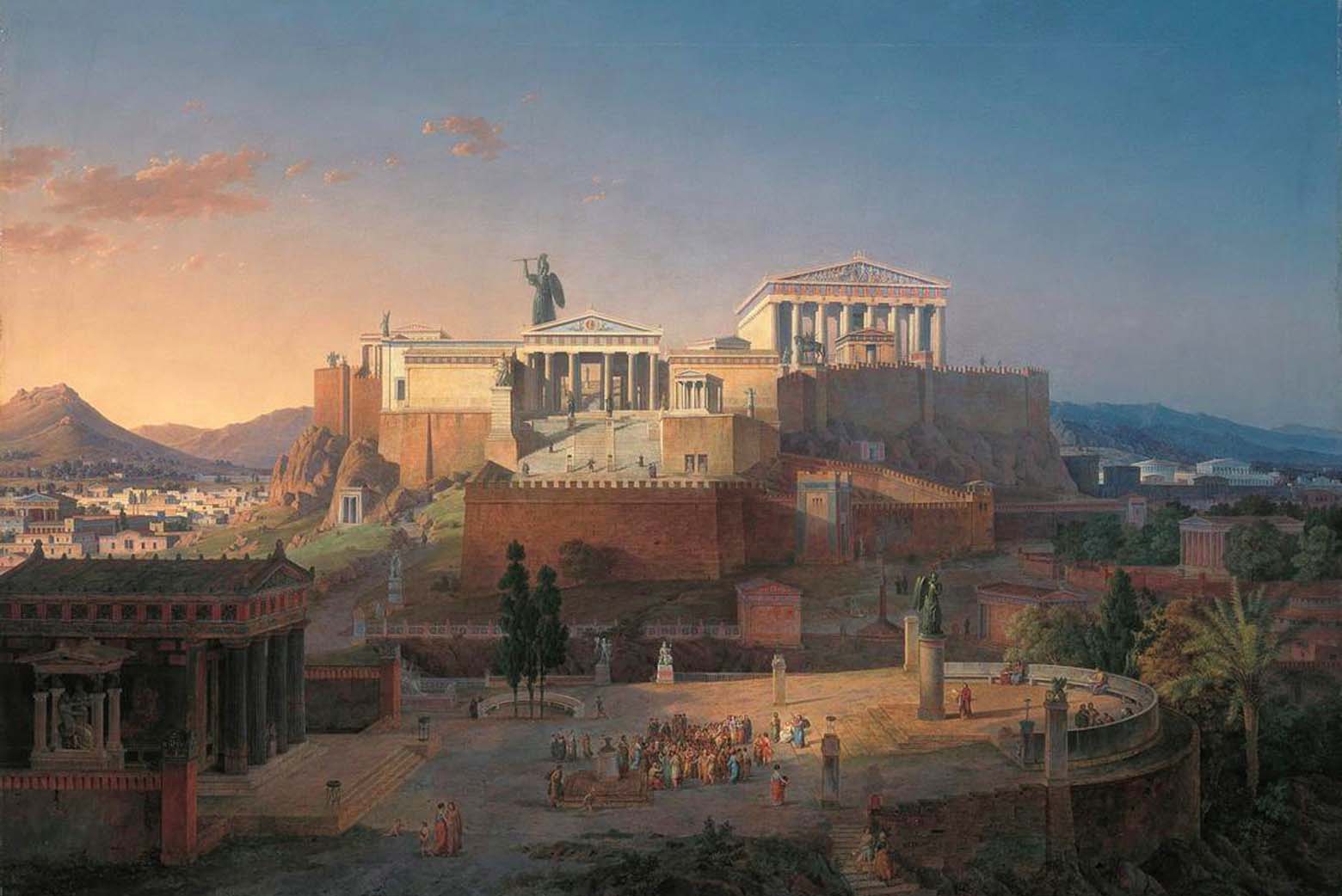The name of Greece differs in Greek compared with the names used for the country in other languages and cultures, just like the names of the Greeks. The ancient and modern name of the country is Hellas or most common Hellada (Greek: Ελλάς, Ελλάδα), and its official name is the Hellenic Republic "Helliniki Dimokratia". In English, however, the country is usually called Greece, which comes from the Latin Graecia (as used by the Romans) and literally means 'the land of the Greeks'.
What is the derivation of the Hellene(Hellinas) ? During the era of the Trojan War, the Hellenes were a relatively small but vigorous tribe settled in Thessalic Phthia, centralized along the settlements of Alos, Alope, Trehine, and Pelasgian Argos. Various etymologies have been proposed for the word Hellene, but none are widely accepted. These include Sal (to pray), ell (mountainous) and sel (illuminate). A more recent study traces the name to a city named Hellas next to the river Spercheus, still named that today. Hellenes in the wider meaning of the word appears in writing for the first time in an inscription by Echembrotus, dedicated to Heracles for his victory in the Amphictyonic Games,and refers to the 48th Olympiad (584 BC).
The modern English word Greek is derived from Latin Graecus, which in turn comes from Greek Γραικός (Graikos), the name of a Boeotian tribe that migrated to Italy in the 8th century BC, and it is by that name the Hellenes were known in the West. Homer, while reciting the Boeotian forces in the Iliad’s Catalogue of Ships, provides the first known reference to a Boeotian city named Graea, and Pausanias mentions that Graea was the name of the ancient city of Tanagra.
There is and the term Hellenistic .Some say that the Hellenistic is not mean Greek or Hellenic!!!. The deriviyion came from the Greek word Έλλην Héllēn and was established by the German historian Johann Gustav Droysen to refer to the spreading of Greek culture over the non-Greek peoples that were conquered by Alexander the Great. According to Droysen, the Hellenistic civilization was a fusion of Greek and Middle-Eastern culture that eventually gave Christianity the opportunity to flourish.
The term Hellenistic mentioned first in the book of Droysen Geschichte Alexanders des Grossen that published at 1833.Modern historians see the death of Alexander the Great in 323 BC as the beginning of the Hellenistic period.
Source: en.wikipedia.org/wiki/Name_of_Greece - history-of-macedonia.com









